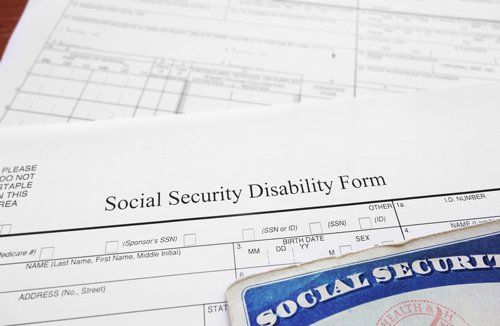
If you've recently become unable to work due to an injury, your life has probably become much more stressful. You're probably in a lot of physical pain, and you're also coping with the mental and emotional pain of being unable to work
As you're going through this difficult time, the last thing you want to do is prove to a court that you deserve your Social Security Disability Income payments. Unfortunately, you have to go through the process to get compensation to maintain your standard of living.
One crucial part of that process is answering questions about your impairment in front of a judge. Below, we'll help you understand how to prepare for this important hearing so you can make the best possible claim for Social Security benefits before the judge.
1. Know What Questions You'll Be Asked Beforehand
At your hearing, the judge will probably ask you some unique questions that relate specifically to your disability and industry. For the most part, though, you can anticipate the questions the judge will ask. These questions fall into a few main categories:
- Personal information. You will be asked your Social Security number, date of birth and physical information like your weight and height, by the judge of your case.
- Educational and vocational training. Your professional and educational history determine what alternative types of employment you could pursue in the future.
- Employment history. You will be asked about both your most recent job and your dates of employment at any other jobs.
- Medical limitations. The judge will ask you to explain, in detail, as much as you can about how your disability affects your quality of life and disrupts your typical routine.
As you can see, you'll have to answer these questions with a lot of specifics — and most people, aren’t able to remember the exact dates they worked for a specific employer many years ago or even your manager's name.
Before you go to the hearing, take the time to sit down and thoroughly catalog your entire educational, employment and medical history, including crucial dates and names. Remember that the more details you provide, the more evidence you have to support your Social Security Disability case.
2. Practice Staying on Track
It's natural to feel stressed about presenting your case before a judge. And when you're stressed, it's similarly natural to fall back on nervous habits like talking quickly or rambling. However, the better you can stay on track and clearly answer the question, the better you'll be able to make your case before the judge.
If you think it could help, ask yourself some sample questions like "what was the first job you ever held?" and then practice answering those questions in the mirror. Talk slowly and clearly, but most importantly, answer the question directly and thoroughly.
Your attorney can also give you a better idea of what types of questions you'll answer, and then help you practice offering clear, descriptive answers.
3. Get More Help by Contacting a Lawyer
Doing everything in your power to prepare for your hearing will help ensure you get the compensation you need to live comfortably. However, Social Security Disability law is complicated, and it's easy to get tangled up in red tape and legalese when you try to tackle the system on your own.
At Milam Law, we're uniquely qualified to help you with all of your questions about Social Security Disability law. Get in touch
with us at any of our California locations — you can call us to schedule your initial consultation where we can evaluate your case and create a plan for moving forward.







